第41章 Mystery and Faith(1)
"For we walk by faith, not by sight." II Corinthians v.7.
It needs only common experience, and but little of that, to convince us that this life is full of mystery, and at every step we take demands of us faith.For at every step we take we literally walk by faith; in every work we do we must have confidence in something which is not by sight, in something which is not yet demonstrated.Skepticism carried to its ultimate consequences is the negation of everything.It closes up the issues of all knowledge, and sunders every ligament that binds us to practical life.We must have faith in something or we stand on no promises; we can predicate nothing.It may be said that in the experience of the past we have a guide for the future; but then, must we not have faith in experience? Do we not trust something which is not yet demonstrated when we say "This cause which produced that effect yesterday will produce a similar effect today or tomorrow?" How do we know--positively know, that it will produce that effect, and what are the grounds of our knowledge? This boasted "cause and effect," this "experience,"what right have we to rely upon it for one moment of the future?
Not for that moment has it demonstrated anything;--it demonstrated for the time being, and the time being only; and our confidence that it will do so again is faith, not sight--faith in cause and effect, faith in experience, but faith after all.
Hume, the philosopher, has illustrated the positions which have now been taken."As to past experience," says he, "it can be allowed to give direct and certain information of those precise objects only, and that precise period of time which fell under its cognizance; but why this experience should be extended to future times, and to other objects, which for aught we know may be only in appearance similar; this is the main question on which I would insist.The bread which I formerly ate nourished me;that is, a body of such sensible qualities was, at that time, endued with such secret powers; but does it follow that other bread must also nourish me at another time, and that like sensible qualities must also be attended with like secret powers?
The consequence seems nowise necessary." And yet we eat our bread, day by day, without a doubt or a fear.We sow the grain and we reap the wheat, but for all the work is done in faith, and the whole process is steeped in mystery.In that scattering of the golden seed, what confidence is expressed in elements that we cannot see, in beneficent agencies that we cannot control, in results that are beyond our power, and that in their growth and development are full of wonder exceeding our wisdom.Give up faith; say that we will act only upon that which is demonstrated and known, say that we will walk only so far as sight reaches, and we completely separate the present from the future, and stop all the mechanism of practical life.
But if we take a wider view of things, and consider this material universe in which we live, the great fact of mystery and the need of faith will be urged upon us by a larger and more impressive teaching.The more we learn of nature the more clearly is revealed to us this fact--that we know less than we thought we did; positively, we know more, but relatively we know less, because as we have advanced nature has stretched out into wider and wider relations.The department that was unknown to us yesterday is explored to-day.Yesterday, we thought it was all that remained to be explored, but the torch of investigation that guided us through it now flares out upon new regions we did not see before.Like one who goes with a candle into some immense cavern, presently a little circle becomes clear, the shadows vanish before him, and undefined forms grow distinct.he thinks he is near the end, when lo! what seemed a solid boundary of rock dissolves and floats away into a depth of darkness, the path opens into an immense void, new shapes of mystery start out, and he learns this much that he did not know before, that instead of being near the end, he is only upon the threshold.We do not mean to imply by this that we have no positive knowledge, or that we do not increase in knowledge.With every new discovery we positively know more and more.But the new discovery reveals the fact that more is yet to be known; it lays open new regions, it unfolds new relations that we had not before suspected.
We follow some tiny thread a little way, and hold it secure, but it is connected with another ligament, and this branches out into a third; and instead of exhausting the matter, we find ourselves at the root of an infinite series, of an immense relationship, upon which we have only just opened; and yet what we have is positive knowledge, is something more added to our stock.The circle of the known has positively widened, but the horizon of the unknown has widened also, and, instead of being to us now, as it seemed some time ago, a solid and ultimate limit, it is only an ethereal wall, only to us a relative boundary, and behind are infinite depths and mystery.Our scientific knowledge at the present day reaches this grand result--it clears up the deception that the system of nature is mere flat, dead materiality, a few mechanical laws, a few rigid forms.It shows that these are only the husks, the outer garments of mighty forces of subtile, far-reaching agencies; and the most common, every-day truths, that seemed stale and exhausted, become illuminated with infinite meaning, and are the blossoms of an infinite life.